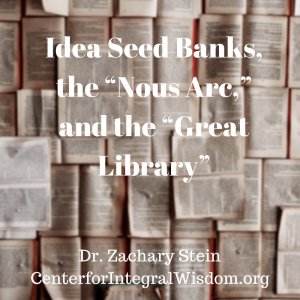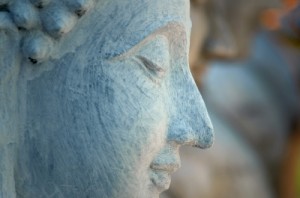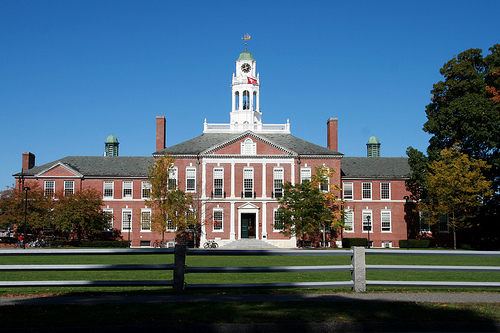Dr. Zachary Stein: Idea Seed Banks, the “Nous Arc,” and the “Great Library”
 What do we need to give “our children” so they can prosper and grow into their highest potential—even though we don’t know what kind of challenges they will face in their lives?
What do we need to give “our children” so they can prosper and grow into their highest potential—even though we don’t know what kind of challenges they will face in their lives?
That’s the real question underlying this beautiful talk by our Academic Director Zak Stein.
Watch and listen to this fascinating thought experiment:
What would be a “seed bank” of ideas that—if preserved—would allow us to recreate civilization from the ground up, in case humanity survived some sort of an apocalypse?
Playing off of Noah’s Arc, Zak calls it the “Nous Arc.”
Engaging in this thought experiment a bunch of questions arise:
- Who gets to decide what should be in there?
- What should be the content of this “Great Library?” or in other words:
- How can we assure that we give the next generation everything they need?
The Need for Meta-Theories
In order to engage these questions, we need Meta-Theories. What are Meta-Theories?
While theories take the world as data, Meta-Theories take theories as data. Meta-Theories norm the norms of discourse.
Listen to this exciting 20-minute talk and learn:
- What a new legitimate model of teacherly authority and intergenerational transmission could be
- How our image of the ideal human looks like that we can teach into
- Why we need a theory of Cosmos and Self
- Which educational environments we need to create—in contrast to the informational environments that are stressful for most nervous systems

 In her recent white paper from January 2014
In her recent white paper from January 2014  Contemplative practice can encourage the ability to focus and enter into a subject with minimal distraction and interruption. It can help a great deal with stress reduction.
Contemplative practice can encourage the ability to focus and enter into a subject with minimal distraction and interruption. It can help a great deal with stress reduction.